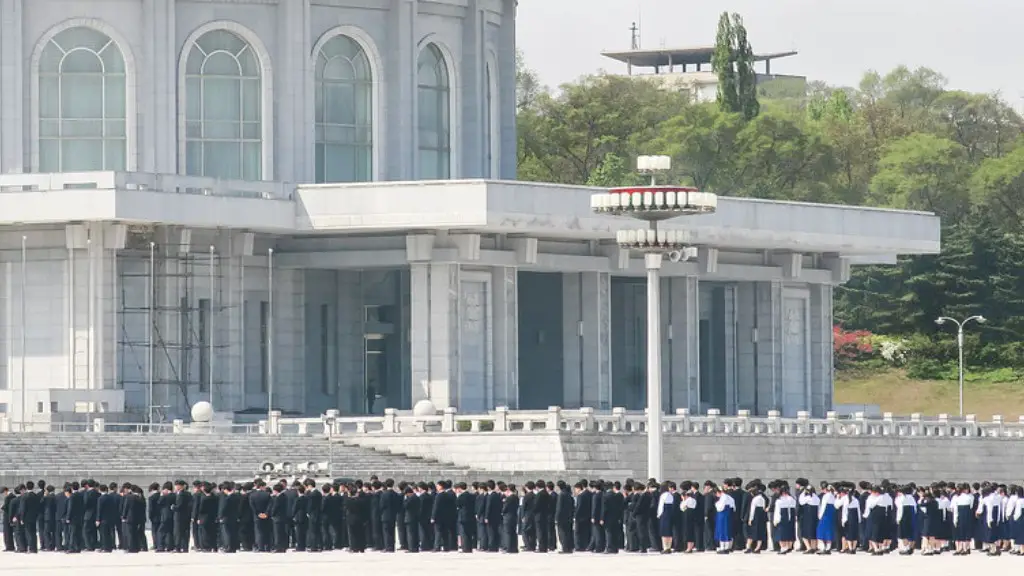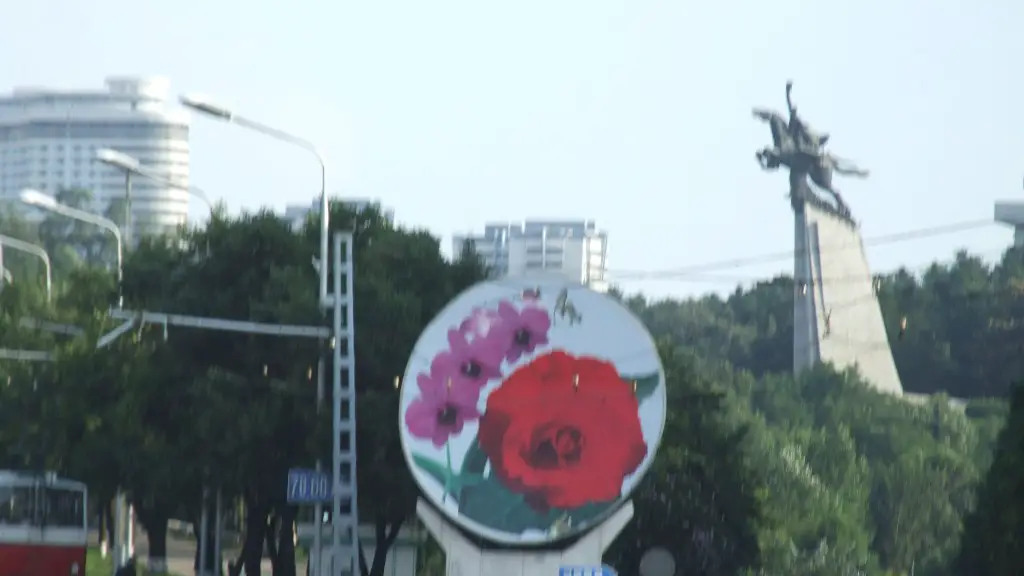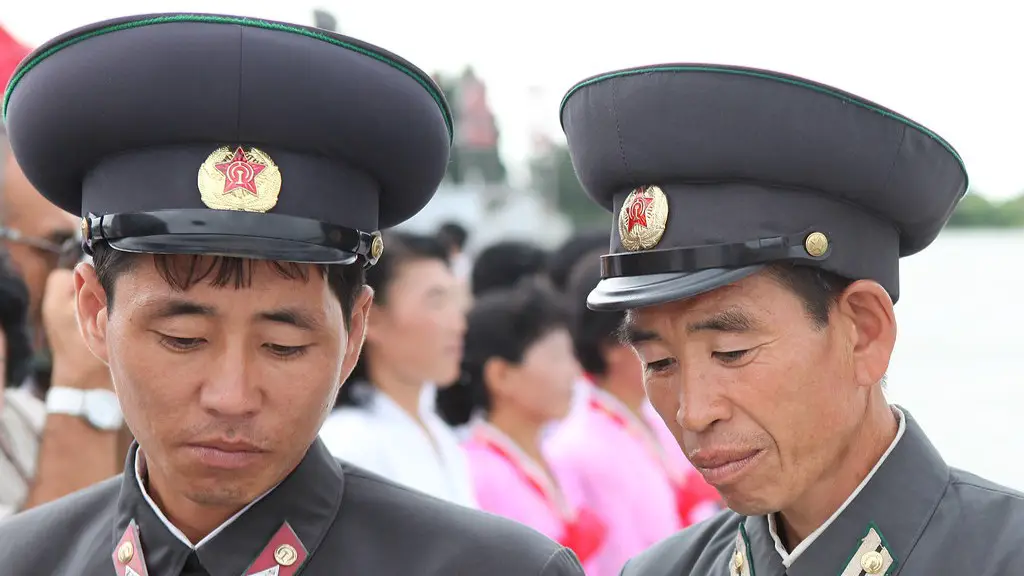Factual Data
Public executions remain commonplace in North Korea and have been a staple of the government’s nascent sense of justice from its inception. Over a decade ago, Amnesty International estimated that hundreds of people a year were being publicly executed in the Hermit Kingdom, and regime insiders estimate that rate hasn’t changed since then. North Korean defectors report that public executions are commonly used to deter criminal activity and quell political dissent.
The Korean Central News Agency, North Korea’s state-run media outlet, has reported on public executions, often referring to them as “special warning activities”. These reported executions are typically offenders of government laws, such as drug smugglers or economic misuses, though occasional cases of those accused of political crimes have occurred.
Given the shroud of secrecy maintained by the North Korean government, it is difficult to confirm the reports of onlookers and regime insiders, though human rights group and international watchdogs have collated multiple witness reports to paint an alarming picture of the state-sponsored capital punishment.
Criminal Justice System
North Korea’s criminal justice system is highly dependent on the whims of the ruling elite and their subjective interpretation of the country’s laws. Brutal punishments of varying intensity are meted out without the benefit of fair and impartial trials. North Koreans found guilty of ‘crimes against the state’ are subject to harsh punishments, potentially including death.
These crimes, listed in the penal code, range from the innocuous to the more serious offenses. The top tier of offenses include the abuse of power, crimes against the state, espionage, terrorism, and other major transgressions resulting in the loss of public property, interests and disrespecting the government. Non-penal detention is also commonplace in North Korea, with those critical of the regime often disappearing and never heard from again.
The lack of independent and fair justice mechanisms in North Korea means that public executions can be easily and randomly enforced without due process or concern for their long-term implications. In a 2018 North Korean Ministry of Foreign Affairs document, the country stated that: ‘the state strictly controls criminal activities and maintains the control of the citizens, and the criminal responsibility of the guilty is serious.’
International Condemnation
Public executions have been consistently condemned on the international stage as a highly immoral form of punishment and as a grave violation of human rights. The United Nations Commission of Inquiry on Human Rights in the Democratic People’s Republic of Korea has repeatedly aired its concerns about the wide-scale use of public executions in North Korea, noting that such punishments are often randomly enforced and paired with widespread use of torture and other cruel and inhuman punishments.
Beyond condemnation, few international sanctions have been successfully enacted against North Korea due to the country’s history of ignoring international agreements and foot-dragging on human rights. However, North Korea still has to abide by certain international laws, such as the Geneva Conventions, if it wishes to retain its international standing and continue receiving external assistance.
North Korean Perspective
The Korean Central News Agency (KCNA), North Korea’s government-run media outlet, has long touted public executions as part of the regime’s efforts to stem criminal activity and maintain law and order. The KCNA often refers to public executions as ‘special warning activities’ and often cites their deterrence factor as the main justification for their continued use.
North Korea also proudly holds up its own unique national values and principles as contributing to its need for public executions. In particular, they argue that the risk of public shame is a major factor in preventing criminal behavior in the country. They argue that the sight of public executions is necessary “so that the people learn to solemnly take reverence for the law and social order”.
U.S. Relations
The United States’ relationship with North Korea has been in flux over the last few years. During the Trump administration, a historic summit between President Trump and North Korean leader Kim Jong Un was held in June of 2018. Since then, talks about disarmament, denuclearization, and sanctions relief have been ongoing, though limited progress has been achieved.
The US government has repeatedly called on North Korea in public statements to end its public executions, showing strong disapproval of the practice. In a recent statement on human rights in North Korea, US Special Envoy for North Korea Robert O’Brien said that it is incumbent on North Korea to “cease public executions”, noting: “North Korea must allow international monitors to verify their human rights commitments, including the right to life”.
Beyond verbal condemnation, the US has taken few diplomatic steps towards ending public executions in North Korea. After the Trump administration withdrew from the UN Horizontal Assistance Treaty, the US government’s ability to impose punitive sanctions on the North Korean regime was substantially decreased.
Civil Society’s Role
Civil society organizations, particularly those located in South Korea, have been consistently vocal in their condemnation of public executions in North Korea. Multiple South Korean-based NGOs and charities, such as Good Friends and Citizen’s Alliance for North Korean Human Rights, have actively publicized the stories of public executions in order to raise awareness of the grim human rights abuses occurring in the country.
These organizations call for peaceful dialogue and collaboration between North and South Korea towards greater understanding, as well as for North Korea to end their use of public executions and other forms of arbitrary punishment. They also advocate for increased international coverage and attention to the abuses, hoping such increased scrutiny can lead to greater accountability from the North Korean government.
Attitudes and Awareness
North Koreans have grown accustomed to the sight of public executions, and news of such punishments often goes unreported by the official government-run media outlets. Consequently, the population, particularly in isolated rural areas, remains largely unaware of the extent of the country’s human rights abuses, including public executions.
Polling conducted among North Korean defectors reveals a broad belief that the North Korean government is acting within its powers and rights in enforcing public executions. This could potentially be due to the population’s endemic mistrust of outsider sources of information and the arrest and threatened execution of those critical of the regime.
However, it should also be noted that many North Koreans are increasingly placing their faith in outside sources such as social media, radio programs, and other forms of outside messaging, which could prove beneficial in the long run in terms of spreading greater awareness of the existing human rights abuses in North Korea.
South Korea’s Response
South Korea’s relationships with its northern neighbour has largely been characterized by periods of détente followed by spikes of tension and embargoed trading. South Korea officially adheres to a ‘sunshine policy’ geared towards achieving and maintaining peace with North Korea, and it has generally maintained a respectful stance towards public executions in the North.
South Korea has long criticized the North’s human rights Abuses and the country is currently in the middle of a diplomatic tug-of-war between North and the US over sanctions, denuclearization, and human rights. South Korea is likely to maintain its official position of caution and restraint when it comes to public executions in the North.
Combined with the US’s limited ability to impose punitive sanctions, this could leave South Korea in a difficult spot in terms of attempting to exert pressure on the North Korean government to end their egregious use of the death penalty.
Political Will and Global Attitudes
The attitude of the international community towards public executions in North Korea has largely been one of condemnation and outcry. This sentiment has been largely echoed on the domestic level with multiple grassroots campaigns against the country’s use of the death penalty. Grassroots advocacy groups have been influential in raising awareness of the issue and lobbying world leaders to use diplomatic channels to pursue an end to public executions.
Furthermore, the attitudes of some countries towards North Korea’s public executions are complicated. While the US and Western countries have largely adopted a ‘tough-on-crime’ stance towards North Korea, other countries such as China have adopted a softer approach due to its strong economic ties to the regime. China has been willing to turn a blind eye to many of North Korea’s failings due to its own vested interests in the country.
This complicated international landscape raises the question of whether there will be the political will to bring true pressure on the North Korean government to end public executions. While it appears that the international community is united in its condemnation of the practice, their reactions are often limited to denunciations and verbal outcries of dismay, with few tangible consequences for the North Korean government.





